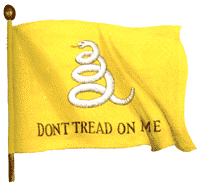An empire, not a republic

Well, we're both, actually. But I couldn't resist the dig at Pat Buchanan.
Here's a meditation by H.W. Crocker III on tomorrow's 435th anniversary of the defeat of the Ottoman Turkish jihad by the Holy League at Lepanto. Crocker admirably spells out our proper war aims in the present Third World War.
The Democrats won't like this article. Neither will the paleo-conservative neo-isolationists like Buchanan, who like to distort the vision of the Founding Fathers with slogans like "a republic, not an empire." Here's a sample of what Crocker has to say:
One need only open Federalist One to see Alexander Hamilton refer to America as "an empire, in many respects, the most interesting in the world," and one that he later hoped to extend to the Southern Hemisphere. Benjamin Franklin, John Adams, and George Washington likewise thought of America as an empire -- an empire that would surpass Britain's in size and power. King George III himself recognized that "The rebellious war... is manifestly carried on for the purpose of establishing an independent empire." Thomas Jefferson, of course, envisioned America as an "empire of liberty." James Polk considered that the Mexican War had delivered "to the United States an immense empire." And American empire builders like Andrew Jackson (annexing Florida) or the filibusters who brought us Hawaii or America's acceptance of the White Man's Burden in the Philippines (where we set up the first democratic government in Asia), spread America's Manifest Destiny from the Atlantic Coast, to the Gulf of Mexico, to the far reaches of the Pacific. All of which is not to mention our taking on the imperial responsibility of setting things aright for the world in two world wars and the Cold War and creating a global system of free trade and international institutions like the United Nations and the International Monetary Fund. The world has enjoyed a Pax Americana for at least the last half century, and it takes an imperial power to deliver a global peace.
Whenever the liberal myth that America is inherently anti-imperialist has guided our foreign policy, the result has been disaster, whether that myth was held by FDR who was far more insistent on getting the British out of Hong Kong and India than on protecting Eastern Europe from Stalin ("Of one thing I am certain, Stalin is not an imperialist"); or by Secretary of State John Foster Dulles and President Dwight David Eisenhower standing side-by-side with the Soviets and Gamal Abdel Nasser and against Britain, France, and Israel at Suez in 1956; or by Jimmy Carter, refusing to support the Shah of Iran (whose very position was a shameful reminder of the sin of Anglo-American imperialism) against the people's choice, and obviously a man we could do business with, the Ayatollah Khomeini.
Now, the Mexican War was not the brightest moment in our history, and despite our good intentions our history in Vietnam is not as glorious as we might prefer to remember it as being. We have indeed, from time to time, committed the very sins of which the Left and others accuse us. But while apologizing for its errors and even crimes, and seeking to learn from them, is the mark of a moral and mature civilization, apologizing for its existence and for the legitimate pursuit of its interests is not.


Comments